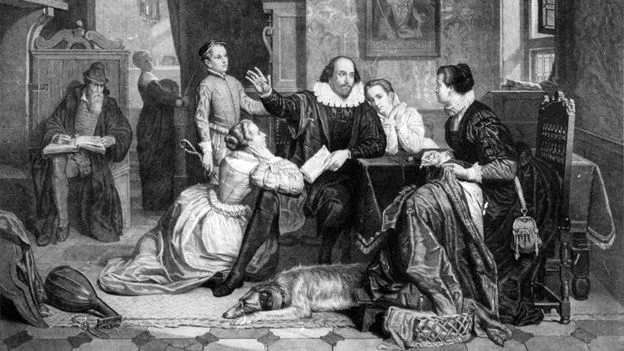‘History has treated her badly’: Hamnet and the 400-year-old mystery around Shakespeare’s wife and son

This conception of Anne / Agnes is not necessarily just wishful thinking though. Carney says: “While it may be tempting to see O’Farrell’s Anne as her attempt to simply turn her into an early modern feminist – a figure more in keeping with our own sensibilities – this portrayal in fact aligns with what we know of the lives of many early modern women.” She adds: “We know that many women successfully ran what we would today refer to as ‘small businesses’: brewing, herbal healing, malt-making, trading, weaving, and more. The degree of literacy required for these careers has been more difficult to assess.”
We still don’t know if Shakespeare’s wife could read. The fictional Agnes can, but O’Farrell herself thinks the character’s real-life counterpart was probably illiterate. “It would’ve been thought pointless to teach the daughter of a sheep farmer to read,” she says.
The Hamlet-Hamnet connection
The marriage that the book and film imagines becomes more distant when Shakespeare leaves his family behind in Stratford-upon Avon for long stretches while he works in theatre in London, absences that are historically well-known. But when it comes to Hamnet’s death and its mournful aftermath, there is only more speculation.
O’Farrell, in line with the Shakespeare scholar Stephen Greenblatt’s influential 2004 essay The Death of Hamnet and the Making of Hamlet, sees a direct line to the play, even beyond the echo of Hamnet’s name. In the film, when Agnes travels to London to see the play for herself – another fictional touch – we see, as she does, that the actor playing Hamlet has been given a costume and hair colour that makes him look like Hamnet. In a brilliant stroke of casting, Jacobi Jupe plays the boy Hamnet and his brother Noah Jupe is the actor playing Hamlet on stage. The visual resemblance between the two is unmistakable. In this interpretation, the play is not only a way for Shakespeare to channel his grief. By playing the role of the ghost of Hamlet’s father, he gets to say goodbye to his son on stage as he never did in life.
More like this:
• 10 of the hottest tips for the Oscars race
• 12 of the best films to watch this November
• The Shakespeare play that makes people faint
Kastan says about the link between Hamnet’s death and the play: “It had to have some [effect], we just don’t know what it was. It is tempting, maybe irresistibly so, to relate the son’s death to Hamlet. The death of Hamnet / Hamlet must have been felt by Shakespeare and his family as a soul-crushing loss. It might then have been at least part of the reason that within a few years of the boy’s death, Shakespeare turned to an old play (maybe by Thomas Kyd) about a son named Hamlet and a ghost calling for ‘revenge’ to write his own Hamlet, in which he would appear on stage. It has long been speculated that Shakespeare played the ghost in his play, reversing the roles of living and dead.” But there are many other influences on the play, both literary and cultural. “The connections between lived event and Shakespeare’s art are just speculation, however intriguing,” Kastan says.





